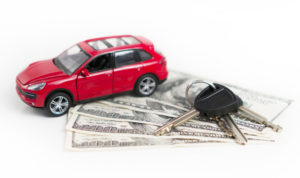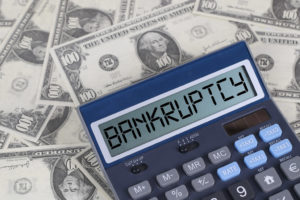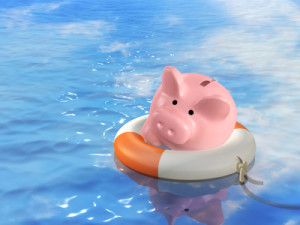 Today’s top story: Starter credit cards are still a thing but are harder to get. Also in the news: A new episode of the SmartMoney podcast on debt and refinancing, debt management as an alternative to credit card relief, and should you let your insurance company track your driving?
Today’s top story: Starter credit cards are still a thing but are harder to get. Also in the news: A new episode of the SmartMoney podcast on debt and refinancing, debt management as an alternative to credit card relief, and should you let your insurance company track your driving?
Starter Credit Cards Are Still a Thing but Harder to Get
Starter credit cards have gotten harder to qualify for in recent years — but not impossible. And more options exist now.
Smart Money Podcast: The Psychology of Debt, and When to Refinance
People are having complicated feelings about plastic.
If Credit Card Relief’s a No-Go, Check Out Debt Management
Not everyone will qualify for hardship programs or find the terms affordable.
Should You Let Your Insurance Company Track Your Driving?
You could get a significant discount.
 Today’s top story: Fear of bankruptcy holds too many people back. Also in the news: Saving for a down payment is only the start for homeowners, pressing pause on private student loans, and it’s time to revise your pandemic budget.
Today’s top story: Fear of bankruptcy holds too many people back. Also in the news: Saving for a down payment is only the start for homeowners, pressing pause on private student loans, and it’s time to revise your pandemic budget. Today’s top story: Ask a Points Nerd: What Will Holiday Travel Be Like? Also in the news: Starter credit card options, how to avoid common and costly home renovation mistakes, and what to know about Sam’s Club’s new telehealth program.
Today’s top story: Ask a Points Nerd: What Will Holiday Travel Be Like? Also in the news: Starter credit card options, how to avoid common and costly home renovation mistakes, and what to know about Sam’s Club’s new telehealth program. Today’s top story: Are cash management accounts safe? Also in the news: 6 items to add to your packing list for COVID-era travel, 5 myths about high-yield savings accounts during COVID-19, and how to talk about debt as newlyweds.
Today’s top story: Are cash management accounts safe? Also in the news: 6 items to add to your packing list for COVID-era travel, 5 myths about high-yield savings accounts during COVID-19, and how to talk about debt as newlyweds. Today’s top story: 6 National Parks to visit this fall and where to stay on points. Also in the news: How to find travel insurance that offers COVID coverage, 7 Personal Finance Rules it’s OK to break during a pandemic, and How to save the economy for everyone.
Today’s top story: 6 National Parks to visit this fall and where to stay on points. Also in the news: How to find travel insurance that offers COVID coverage, 7 Personal Finance Rules it’s OK to break during a pandemic, and How to save the economy for everyone. Today’s top story: A new episode of the SmartMoney podcast featuring Drag Race All-Star winner Shea Couleé talking about the drag economy. Also in the news: Online banking FAQs, how to invest in the S&P 500, and how to plan for interest rates staying low through 2023.
Today’s top story: A new episode of the SmartMoney podcast featuring Drag Race All-Star winner Shea Couleé talking about the drag economy. Also in the news: Online banking FAQs, how to invest in the S&P 500, and how to plan for interest rates staying low through 2023.